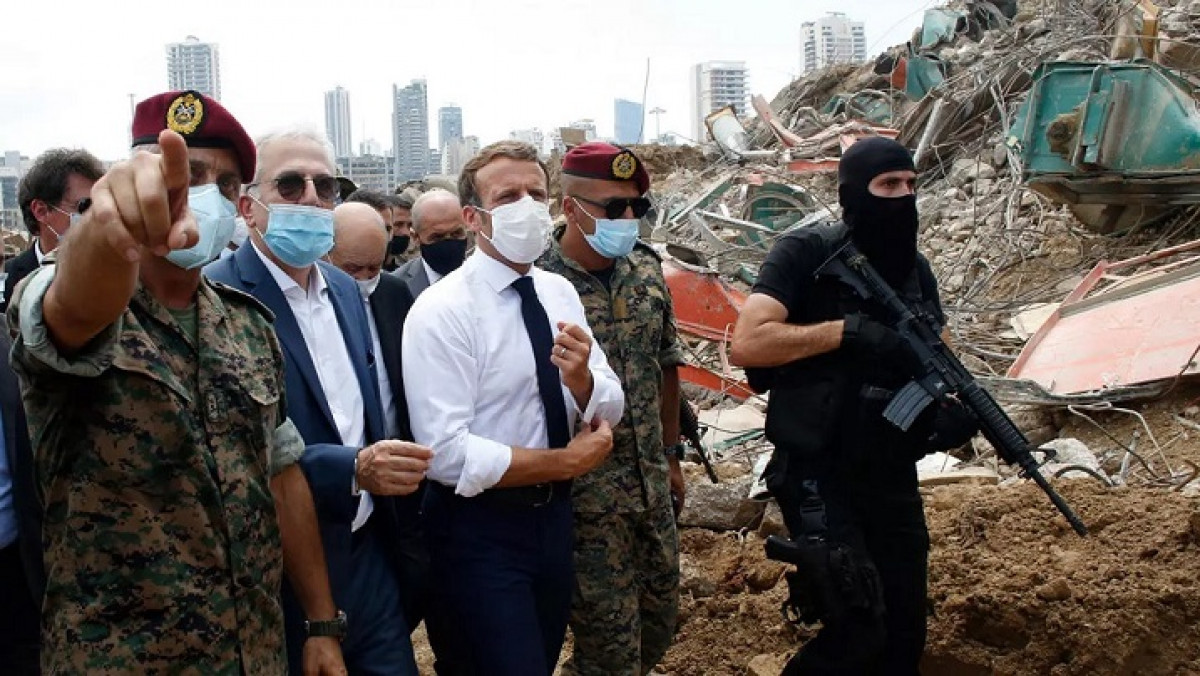Mid West
Beirut boils with anger against the government, Macron visits, promises help
Enraged people shouted “revolution”!

French President Emmanuel Macron on Thursday landed in Beirut amidst grief and fury. He pledged support to the blast-shaken city and sought a change in the graft-ridden governance following the massive devastation caused by an explosion.
“Lebanon is not alone,” he tweeted. He said France would coordinate relief measures provided by countries across the world. Around 137 people died thousands were injured and caused extensive damage in the explosion, said an Arabnews report.
However, the French president warned that Lebanon — already facing a severe economic crisis and political upheaval — would “continue to sink” if urgent reforms are not executed.
People are boiling with anger over the calamity resulted due to a huge stock of ammonium nitrate which was lying in a dilapidated portside warehouse — indicating the deep rot in their government machinery.
Macron surveyed the explosion site, which has been reduced to a barren land of ruins, debris and rubble, where seawater is inundated in a 140-m crater.
Enraged people shouted slogans against their “terrorist” leaders and seeking “an end to the regime” through a “revolution”!
The impact of the blast was so massive that it was experienced in neighbouring countries. The mushroom-shaped cloud reminded people of the Hiroshima tragedy.
Lebanese described it as “Apocalypse,” “Armageddon”. The explosion dwarfed all the acts of violence the country had gone through in the past
The number of dead would increase as rescue operations continued. The city governor said around 300,000 people had rendered homeless, which would cost over three billion dollars. Officials said a fire triggered 2,750 tons of ammonium nitrate fertilizer stored for years in the godown.
“We can’t bear more than this. This is it. The whole system has got to go,” said Mohammad Suyur.
Prime Minister Hassan Diab and President Michel Aoun said the culprits would be arrested. However, people have lost trust in institutions. The disaster could threaten what activists called a hereditary kleptocracy.
“Lebanon’s political class should be on guard in the weeks ahead,” wrote Faysal Itani of the Center for Global Policy in The New York Times. “Shock will inevitably turn to anger.”
“An independent investigation with international experts is the best guarantee that victims of the explosion will get the justice they deserve,” said Human Rights Watch.





